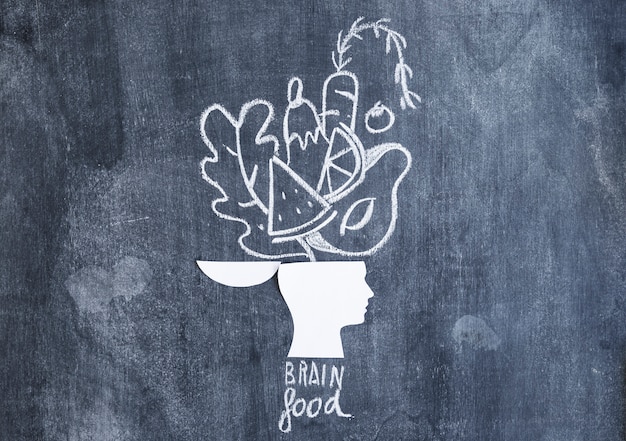

The human brain weighs about 3 pounds, making it the most complex and remarkable organ in the body.
The brain is made up of approximately 86 billion nerve cells called neurons.
The brain is comprised of two hemispheres, the left and right, each with its own unique functions.
The brain uses 20% of the body’s total oxygen and energy, despite only taking up 2% of its overall weight.
Your brain generates roughly 70,000 thoughts per day, which equates to about 2,500 thoughts per hour.
The brain is responsible for controlling all bodily functions, including breathing, heart rate, and digestion.
The brain processes information at an incredibly fast speed, with some neurons firing at a rate of 200 times per second.
The brain’s processing power is often compared to that of a supercomputer, able to perform complex calculations and tasks.
The human brain continues to develop and grow until around the age of
The brain is a master of adaptation, constantly forming new neural connections and pathways based on experiences and learning.
The brain has the remarkable ability to heal itself and rewire its functions after injury or trauma.
The brain’s memory capacity is virtually limitless, capable of storing and recalling vast amounts of information.
Sleep plays a crucial role in brain health, allowing the brain to consolidate memories and recharge for optimal functioning.
The brain releases chemicals called neurotransmitters, which are responsible for transmitting messages between neurons.
The brain releases hormones that regulate various bodily functions, such as mood, appetite, and stress levels.
The brain’s left hemisphere is associated with logical and analytical thinking, while the right hemisphere is linked to creativity and intuition.
The brain’s prefrontal cortex, responsible for decision-making and impulse control, continues to develop throughout adolescence.
The brain’s reward system is activated by pleasurable activities, such as eating delicious food or experiencing a sense of accomplishment.
The brain’s amygdala, often referred to as the fear center, plays a crucial role in the processing of emotions and fear responses.
The brain can produce an electrical signal detectable outside the body, known as brain waves.
Meditation and mindfulness practices have been shown to strengthen brain regions associated with attention and emotional regulation.
Physical exercise has numerous benefits for the brain, including improved memory and cognition.
Chronic stress can have detrimental effects on the brain, leading to impaired memory, attention, and mood.
The brain’s hippocampus, responsible for memory formation, is significantly larger in London taxi drivers due to their extensive navigation training.
Some studies suggest that playing a musical instrument can enhance brain development and improve cognitive skills.
The brain’s frontal lobe, responsible for planning and decision-making, is not fully developed until early adulthood.
The brain’s ability to focus and concentrate can be strengthened through practice and training.
The brain’s sense of smell is closely linked to memory and emotions.
The brain can experience a phenomenon called neuroplasticity, where it can reorganize and adapt to new situations or challenges.
The brain’s cerebellum, located at the back of the brain, is crucial for coordinating movement and balance.
The brain’s ability to process information and make decisions can be influenced by various factors, including genetics, environment, and nutrition.
Chronic sleep deprivation can have long-term effects on brain health, including reduced cognitive function and increased risk of neurological disorders.
The brain’s insula, located deep within the brain, plays a key role in processing emotions and self-awareness.
The brain’s wiring is unique to each individual, contributing to differences in personality traits and cognitive abilities.
The brain’s visual cortex, located at the back of the brain, is responsible for processing visual information.
The brain’s ability to empathize and understand others is facilitated by regions such as the anterior cingulate cortex and the mirror neuron system.
The brain has an incredible capacity for learning and acquiring new skills, known as neuroplasticity.
The brain’s ability to multitask is a myth; it can only focus on one thing at a time, but it can switch tasks quickly.
The brain’s processing speed tends to decline with age, but the accumulation of knowledge and expertise can compensate for this decline.
The brain’s ability to perceive and interpret the world is influenced by our beliefs, experiences, and cultural background.
The brain’s sense of time can be distorted, leading to the phenomenon of time flying by when engaged in a pleasurable activity.
The brain’s hypothalamus plays a crucial role in regulating the body’s internal temperature and managing hunger and thirst.
The brain’s capacity for imagination and creativity allows us to envision and create new possibilities.
The brain’s ability to recognize faces is highly developed, with specific regions dedicated to facial recognition.
The brain’s ability to change and adapt throughout life, known as neuroplasticity, offers hope for rehabilitation after brain injuries or neurodegenerative diseases.
Around the world, coffee enthusiasts enjoy Monin coffee concentrate since it is a multipurpose product. Conveniently combining…
The Importance of Choosing the Right Shower for Your Bathroom Renovating your bathroom can be…
Usain Bolt holds the record for the fastest 100-meter sprint in history.Bolt was named Sportsman…
Love is in the air... and it smells suspiciously like chocolate!Roses are red, violets are…
Life's a beach, take a picture and relax.Sun, sand, and salty kisses. That's what beach…
Hungary is home to the largest thermal water cave system in the world.The Rubik's Cube…